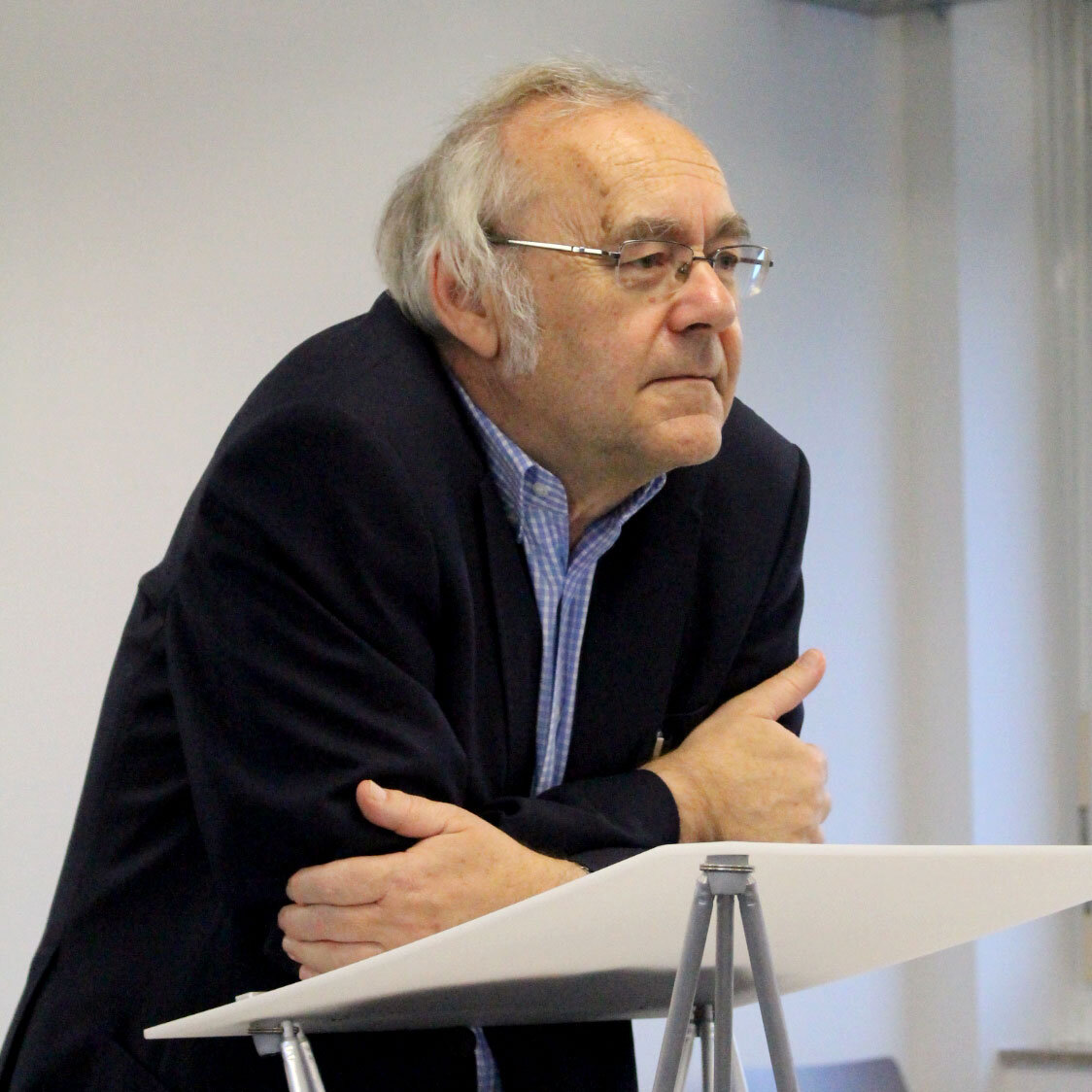The Flight From Contingency 8


86. The argumentative equipment the members of our society acquire in the course of their education, of their formative years, includes the use of many expressions that play an outstanding role in philosophy, expressions such as: “truth”, “falsehood”, “error”, “reality”, “fact”, “consensus”, “dissent”, “correspondence”, “correlation”, “agreement”, “proof”, “verification”, “falsification” and more. The use of these expressions in daily life may not live up to the argumentative standards of truth-oriented philosophy, but it is at least somehow related to them and for a number of philosophers the everyday understanding of these expressions is equivalent to common sense and a naive version of a central philosophical position, namely of realism.
87. An unproblematic, unassuming use of expressions like “true” and “false” is to agree or disagree with other opinions, to accept or reject them or to make a demarcation.
In conversations with others consent in the form of “What you say, is true.” saves us repeating the other opinion. Instead we can also say “I fully agree with you.” or “I share your opinion.”, but we could as well simply nod in approval. Conversely, if the conversation ends with me saying: “What you’re saying, is false.” this means, that I don’t share your opinion. And it is not so rare that in our conversations we leave it at different opinions: The result of such a conversation would be, that you think so and I think differently and that insofar we do not only respect a deviating opinion but often get to know it in the first place.
88. However it is far more common that, when conflicts arise, we do not leave it at different opinions, but try to resolve the differences. To resolve disagreements and settle conflicts usually means no more than that of two conflicting opinions , one is abandoned in favor of the other or both in favor of a third one.
89. The attempt to reach a decision between conflicting opinions is made and especially desirable when there is an interest in such an agreement. The interest in the respective opponent adopting one’s own opinion and believing it to be true instead of his previously held opinion, can be wide-ranging: from power and influence in various spheres of life to social or economic interests, all kinds of values such as freedom, justice, morality and peace – or quite banally personal prestige, a feeling of satisfaction, etc.
90. If an amicable agreement is not possible – for example through conviction, persuasion or the usual trade-off and exchange of arguments – then a possible decision between competing opinions could be reached with the help of instances or criteria or at least by appealing to them.
91. What are the instances that are used to decide conflicts? Such instances may be, depending on the kind of conflict: nature, reality, facts, history, or laws. Often in (court) proceedings there is an appeal to several instances. These instances, in turn, are themselves mute, but there are authorized representatives for all instances who should lead to an impartial or bipartisan decision between the conflicting parties. The representatives of these instances, their spokespersons, are judges, court-certified or sworn experts and other authorities.However the judgments of these authorities usually result in the truth-claims being redeemed only for the winners of such a procedure, but not for the losers. The unsuccessful party may lose faith in justice and accuse the decision-making instances of being biased, not having decided objectively, and so on. After all, each party claims that it represents the facts adequately, interprets the laws correctly and has a true opinion about reality etc. – albeit without decision-making power. After the decision against its view the defeated party will perhaps appeal to a next-higher instance which again is “mute”: the reality, the facts etc. with which it sees itself in accordance and agreement. Only rarely does it happen that the decisions of the instances satisfy all parties, for instance when the parties relativize or even retract the truth-claims to their opinions in the course of the proceedings and a “third solution”, a balance of interests, is found.
92. Even in these cases power, law, authority and truth are difficult to separate from one another. The connection between truth and power becomes even stronger in conflicts where there is no referee whose decision, albeit under(legal) pressure, is recognized by the conflicting parties.
93. The most diverse gradations are possible. If a democratic politician says (on the occasion of a citizens’ initiative): “We will try to establish a consensus on the broadest possible basis; if this is not possible, we will impose the truth by other means.” this need not yet pose a dangerous threat. In history however it was always the winners who said that truth had won, and the losers that truth will ultimately prevail.
Heretics and false teachers have been burned for the sake of truth and they endured being burned for the sake of truth. The judge in the witch-trial tried to persuade the defendants to accept his judgment of their deeds. The defendants were supposed to confess the truth, that is, to adopt the judge’s truth, to redeem his truth-claim. This was attempted and usually achieved through torture or perhaps by promising a relatively painless execution.
94. The unsatisfactory situation in the world of everyday life: Although there is hardly any talk of truth as long as long as there are no conflicts, when conflicts do arise, each conflicting party claims that truth is on their side (or that their opinions are in line/agreement with reality, correctly reflect the facts, accurately present the state of affairs, are in the right etc.). This way the parties arrive at deadlocks, at stalemates, which in turn can lead to the use of power to support and enforce their own truth claims as a result of the assumption that there is only one truth.
95. In science the situation is unsatisfactory, too: Scientists are admittedly more familiar with philosophical ideas, especially those in philosophy of science, than ordinary citizens in everyday conflicts. The philosophical position they hold is usually a current position in philosophy. A few decades ago (neo)positivist ways of thinking dominated, still current are critical rationalist modes of thought, the enormous influence of Thomas Kuhn has led to a rapid proliferation of paradigms (a geographer recently stated twelve competing paradigms for his science) and at present constructivist and constructionist theories are becoming increasingly more popular.
Scientists use in their discussions with other members of the scientific community not so much the vocabulary of specific philosophical theories but rather a crude realistic language. Truth-claims are only reluctantly used for one’s own research, charges of error and falsehood come more easily, especially accusations of failure. Failure is often simply stated as a “failing against reality” (Scheitern an der Realität) with reality being frequently represented in discourse through authorities who are (the) authors themselves.
Scientists also like to emphasize the relative absence of conflict in science, perhaps carried by the desire for uniformity of scientific thought, for the singularity of its results.
But this absence of conflict is often only an absence of conflict in scientific journals, in the scientific public. The conflicts usually take place in the forefield and in the background: when articles submitted to journals are peer-reviewed, when projects are approved, appointments are made, junior scientists promoted, and so on. Other factors also contribute to the relative conformity of scientific discourse: In some sciences, such as physics or neurobiology, experiments are often so costly that they are not (or even cannot be) replicated; the research groups involved are so well-staffed that this alone leads to a large number of scientists representing a uniform view as well to the outside world. What probably contributes most to the “unity of science” is that strongly deviant views and theories are excluded from scientific discourse as unscientific.
Annotation:
Until some time ago scientists were able to rely on conventional philosophy of science as an “ancilla scientiae”. The present trend toward criticism of truth and science has led some scientists to declare the so-called “science wars” in which they polemicize(d) against truth- and epistemological relativism in philosophy. The level of their criticism is similar to the level at which the philosophers criticized use scientific statements especially from quantum theory to illustrate and underpin their theses. The irritation of scientists through the undermining of the idea of the one world and the one truth by a multiple of it is understandable. It is easier to apply for money for foundational research, when this research serves the discovery of the truth about reality, than to justify foundational research through its consequences. This may well be what worried Steven Weinberg in an article in “Lettre”, even if he and the science can continue to count on the support of eminent philosophers like John Searle and Thomas Nagel. So he is not alone in hoping that the next great advance in physics will see “the theory of gravitation and the various branches of elementary particle physics merge into a single unified theory.” “That’s what we are working for and that’s what we are spending the taxpayers money on. And when we have arrived at that theory it will be part of a true description of reality.” In contrast the world of science was still in order for philosophers, when, for example Wilhelm Kamlah and Paul Lorenzen wrote in their “Vorschule des vernünftigen Redens” (“Preschool of rational speech”): “Modern science has formulated a wealth of theorems, whose rationality, impressively is recognised throughout the whole world. Most of them answer questions that would not even have been imagined by humans in earlier times. In other words: We know today more about the world and about man than any previous generation and also more than Aristotle or St. Paul. And this theoretical knowledge is applied in a wide variety of technical and medical practices, the benefits of which no one would want to do without.” “The more one recognized the impossibility of renouncing unified knowledge, which provides at the same time information about the world and about man’s ability to live, the more a pathos of truth emerged, which still does honor to science today.”
96. So why is it that truth without power can hardly prevail in conflicts outside of a professional philosophical discourse? Unless we have the better rhetoric, the money for a good lawyer, for the better experts?
Is it (also) because of the lack of philosophical education of the participants in the discourse? Or because they hold a more vulgar philosophical position, have not mastered the scientific method and cannot argue their standpoint impeccably? Self-opinionatedness perhaps? Because the use of the concept of truth in every day life is superficial and not well-founded as in philosophy? Or perhaps because they cannot distinguish between holding-to-be-true and being true: but even the philosophically uneducated discourse-participant claims to be able to make this distinction; he may readily concede that the opponent believes that the facts are such and such, but believing does not mean knowing and in reality the facts are different, this he can prove.
97. Can the usage of philosophical instruments for establishing and finding truth and avoiding error in discourse-conflicts significantly increase the chance of an argumentative solution in favour of the true opinion – if it is at all held? If not, then philosophy would have nothing to set against arbitrariness.
98. It should make a difference whether someone, out of pure self-interest, calls his own opinions true and those of the opponent false or whether a distinction is made between holding-to-be-true and being true, between facts and illusions, through a careful and critical analysis according to the standards of philosophy.
99. Dualist, truth-oriented philosophers professionally elaborate exactly what they are so called for: dualist ways of thinking, possibly also a theory of truth and knowledge, or they develop further theories of other philosophers. In the process, unless they are monomaniacs or unwilling to engage in discussion, these philosophers are almost constantly in conflicts/disagreements with other philosophers, who hold divergent views about philosophical problems.
How do they proceed in these conflicts? Would the philosophers not have to argue in conflicts with other philosophers in their own philosophical jargon and apply the truth-oriented way of thinking they have developed? And such an application should produce nice results. Or?
Where else if not in discourse-conflicts – that is, when truth is at stake – is truth-oriented philosophy supposed to prove itself, whether within philosophy or outside of it? Wouldn’t it be strange if a philosopher propagates the pursuit of truth or at least the avoidance of error as a goal and cannot make a positive contribution to the achievement of this goal?
100. We shall see.
Next: The Flight From Contingency 9

Josef Mitterer is an Austrian philosopher.
The Flight From Contingency 1 here
The Flight From Contingency 2 here
The Flight From Contingency 3 here
The Flight From Contingency 4 here
The Flight From Contingency 5 here
The Flight From Contingency 6 here
The Flight From Contingency 7 here
On Interpretation 1 here
On Interpretation 2 here